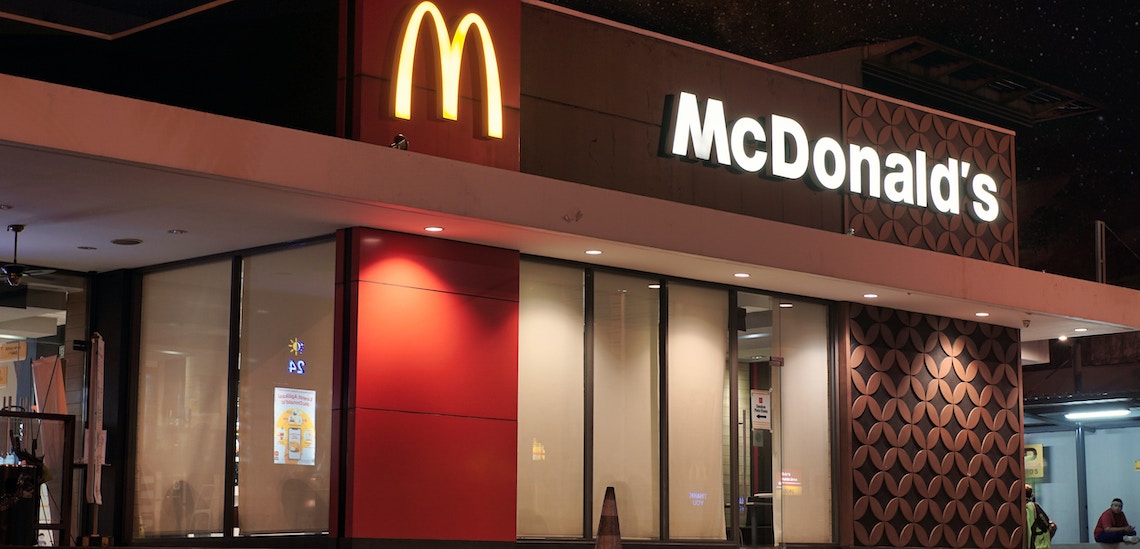
McDonald's image by Visual Karsa on unsplash.com
Written by Ben Hensley
Coming on the heels of Assembly Bill 257, which was placed on temporary hold until the November 2024 election, Assemblymember Chris Holden introduced Assembly Bill 1228 in February, aiming to change liability rules for franchised eateries in the quick-service restaurant industry.
AB 1228 aims to require fast food franchisors and franchisees to share all civil liability for violations of laws and regulations — a concept that has restaurant franchisors concerned about an industry already taxed with rules and regulations.
The proposed bill argues that the quick-service restaurant industry has shown a history of past law violations such as wage theft, sexual harassment, discrimination and other monetary and physical workplace violations, and that by combining liability, franchisors will take more responsibility to achieve compliance with employer laws.
The No on AB 1228 coalition fears that, if passed, AB 1228 will shut down local restaurants, incentivize potentially frivolous lawsuits and lead to higher food costs to the consumer. The coalition argues that California is home to some of the most scrutinous laws for quick-service and restaurant industry employees and businesses, and that AB 1228 is wholly unnecessary.
Ali Nekumanesh, president at Eagle Management Business Consulting and executive vice president of Deli Delicious Franchising Inc., agrees, and fears the bill unfairly singles out the quick-service and franchising industries.
“I don’t believe Mr. Holden understands the franchise model and how it works,” Nekumanesh said. “This is a way for them [franchisees] to get a start while drastically reducing the propensity of business failure – because in franchising, people know the name.”
Nekumanesh said that franchising opportunities are a way for employees and prospective business owners to reduce the cost of owning and operating a business while simultaneously working through the ranks of employment with the overall parent company.
“Franchisees are the independent business owners who sign an agreement with the franchisor to use its logo and service marks for a period of time,” Nekumanesh said.
He went on to also explain that contractually, franchisors are not permitted to engage in employment-related decisions made by individual franchise owners.
Nekumanesh fears that the potential threat of legal action not only potentially harms businesses at a corporate level, but also at a regional level. Nekumanesh said that many franchise owners work their way up in the quick-service industry, progressing from entry-level positions to management, and eventually, ownership and executive-level opportunities.
“Most of them [management] grow within the ranks and files of that system to get into multi-unit management, executive-level management, C-suites and so on,” he said. “No other industry that I know of, outside of hotels, offers that kind of opportunity.”
According to the No on AB 1228 coalition, approximately 70% of franchisees own just one restaurant, with many investing their life savings into their small business.
“The franchisees are independent business owners, much the same as any other owners of small, independent businesses,” Nekumanesh added.
Nekumanesh argues that the scrutiny placed on quick-service restaurants is unfair, given that the quick-service restaurant industry already operates under some of the strictest laws in the nation, and that the implementation of AB 1228, may further the trend of business migration out from California.
Additionally, the No on AB 1228 coalition points at studies from Employment Policies Institute, which found that from 2017-2022, only 1.6% of wage claims originated from the quick-service industry, despite the industry claiming 3.2% of the state’s workforce.
As an alternative to the proposed bill, the coalition recommends strengthening the industry in what they consider to be a more practical way.
“Rather than pass an unnecessary new law that will incentivize frivolous lawsuits and add more bureaucracy and red tape, we should increase funding for stronger enforcement and accountability from the state agencies that already exist,” the coalition’s website suggests.
Both the coalition and Nekumanesh recognize the strength of California’s laws regarding the quick-service industry already and argue that additional legislation would be unnecessary at best and detrimental to the workforce at worst.
After its initial introduction on Feb 16, the bill has yet to pass through the state Assembly. As of May 18, the bill was read a second time, received an 11-to-4 vote (with one abstain), and has been ordered to a third reading.








